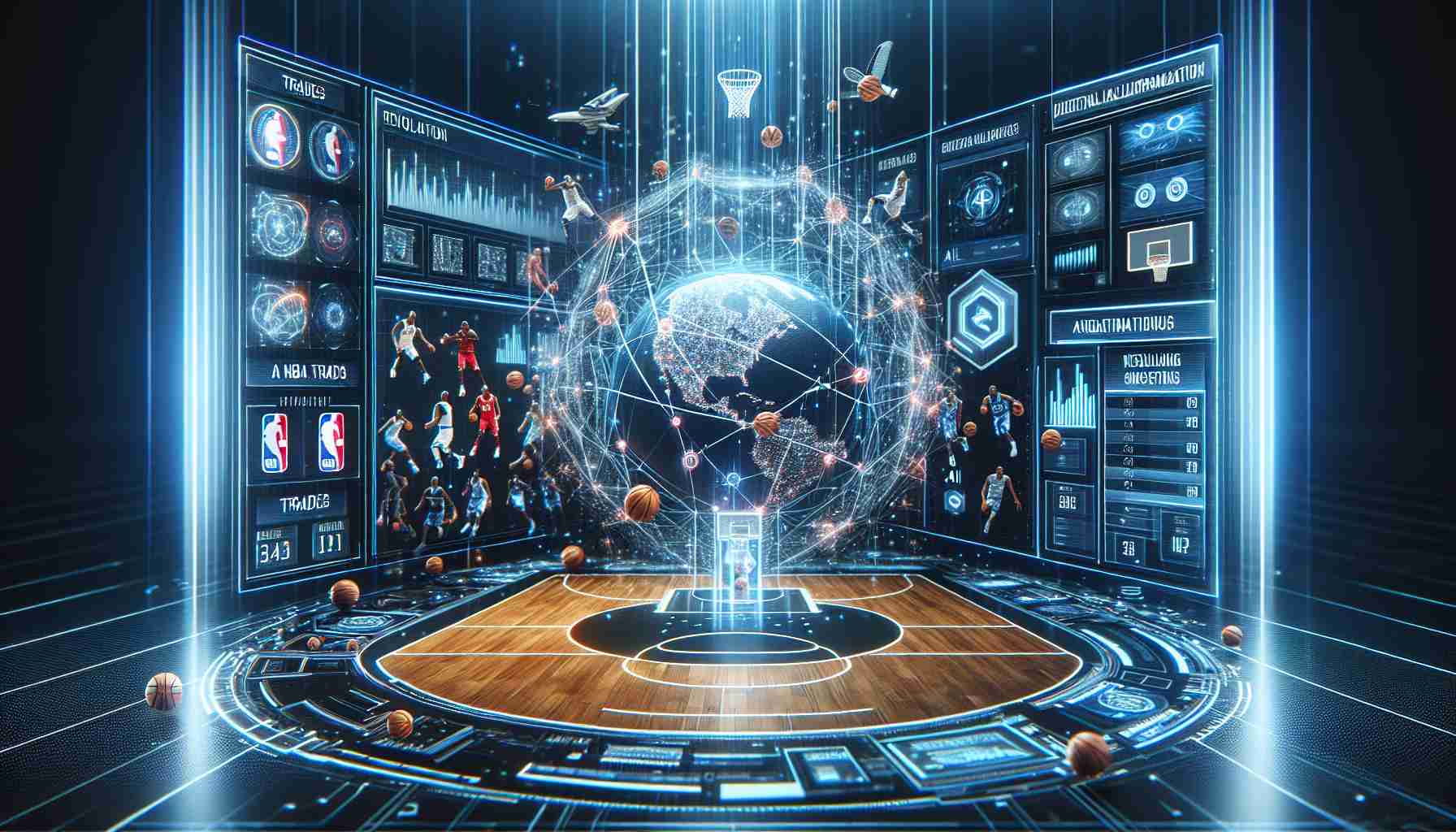
AI Revolutionizes NBA Trades! The Future of Basketball Deals is Here.
- The NBA is integrating artificial intelligence to enhance trade decision-making processes, aiming for more efficient and insightful strategies.
- An advanced AI platform analyzes numerous data points like player performance, injuries, and contracts to predict trade outcomes over multiple seasons.
- AI evaluates social media to understand fan sentiment, allowing teams to balance competitive goals with fan engagement and loyalty.
- This technology-driven approach signifies a collaboration between tech and human expertise in sports management, potentially influencing other sports leagues globally.
- The shift promises deeper strategic insights, optimizing team building for better outcomes for players, teams, and fans.
In an era where technology intertwines with nearly every aspect of professional sports, the NBA is taking a giant leap forward by integrating artificial intelligence into the trade decision-making process. This groundbreaking development promises to reshape how teams strategize and negotiate player exchanges, bringing a new level of efficiency and insight into the complex web of NBA trades.
At the heart of this innovation is a sophisticated AI platform that analyzes countless data points, including player performance stats, injury history, contractual details, and more. Using machine learning algorithms, the system provides teams with predictive analyses, offering a glimpse into how potential trades might pan out over multiple seasons. This futuristic approach allows teams to make more informed decisions, balancing immediate needs with long-term aspirations.
Beyond statistics, AI’s role extends to understanding fan sentiment through social media analysis, enabling teams to gauge public reaction to potential deals. This new dimension ensures that team management not only builds a competitive roster but also maintains fan engagement and loyalty.
The integration of AI in NBA trades highlights a future where technology and human expertise work hand-in-hand to optimize team building. As this trend catches on, other sports leagues worldwide may soon follow suit, thus heralding a new era in sports management. The potential for deeper strategic insights and improved outcomes makes this shift an exciting development for players, teams, and fans alike.
How AI is Revolutionizing NBA Trades and Their Future Impact
What are the Pros and Cons of AI Integration in NBA Trades?
Pros:
1. Enhanced Decision-Making: By analyzing a vast array of data points, AI provides teams with more comprehensive insights, allowing for strategic decisions based on predictive analytics.
2. Efficient Resource Management: AI aids in evaluating the long-term impacts of player trades, minimizing risk and maximizing resource allocation.
3. Fan Engagement: By assessing fan sentiment via social media, teams can better align decisions with fan expectations, strengthening loyalty and engagement.
Cons:
1. Over-reliance on Technology: Solely depending on AI might overlook the human aspects of team dynamics and player performance.
2. Initial Costs and Implementation: Establishing an AI system requires significant financial investment and training for teams to leverage fully.
3. Privacy Concerns: The use of extensive data, including social media analytics, raises concerns about player and fan privacy.
How is AI Enhancing NBA Trade Predictions?
AI’s involvement in NBA trades is revolutionizing prediction accuracy. By delving into intricate data such as player histories, game stats, contractual obligations, and health records, AI can forecast trade outcomes and player performance over multiple seasons with impressive precision. Machine learning algorithms continuously refine their analyses, adapting to new trends and data inputs to provide teams with the most relevant projections.
What Future Trends Can We Expect with AI in Sports Management?
1. Broader Adoption in Sports: As AI proves its worth in optimizing decisions and enhancing fan engagement, other professional sports leagues are likely to incorporate similar systems.
2. In-depth Performance Metrics: Beyond current metrics, expect the development of more nuanced player performance evaluations, potentially including psychological and situational analyses.
3. Sustainable Game Management: AI will likely help teams in making eco-friendly choices related to travel, stadium operations, and event planning, contributing to sustainability efforts across sports industries.
For more comprehensive information on AI technology in the sports industry, visit NBA and other related sports technology websites. Discover more about how AI and technology are reshaping various aspects of sports management and the potential challenges and opportunities they present for the future.
Comments (0)